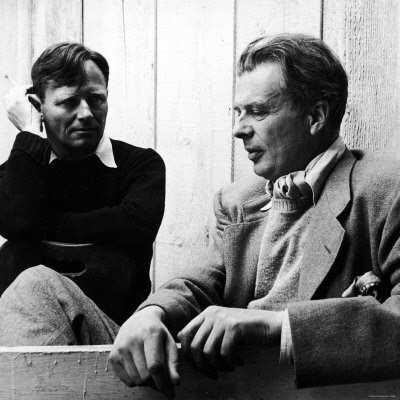Jacob's Hands: A Fable by Aldous Huxley and Christopher Isherwood

Major Talents "Slumming" a Bit for Hollywood Saying that Huxley and Isherwood are slumming by writing a screenplay is really an unfair comparison to the Hollywood of then and the Hollywood of now. Hollywood has always produced junk, but back then they were also more likely to look for those scripts that wrote about the human condition, looking to make a picture that talked about bigger issues. The introduction and the product description on the back cover tell us that Isherwood and Huxley fled Europe for the comparative freedom of Hollywood. "Jacob's Hands" really is more of a Twilight Zone effort than a traditional novel. It can best be described as a John Steinbeck type of simple 30 year old farmhand has the power to heal animals and most people with has hands. But, this wonderful gift has a lot of burdens, too. Christopher Isherwood (left) and Aldous Huxley The novel is clearly written for the movies. Lots of the description and scene-setting is ...



